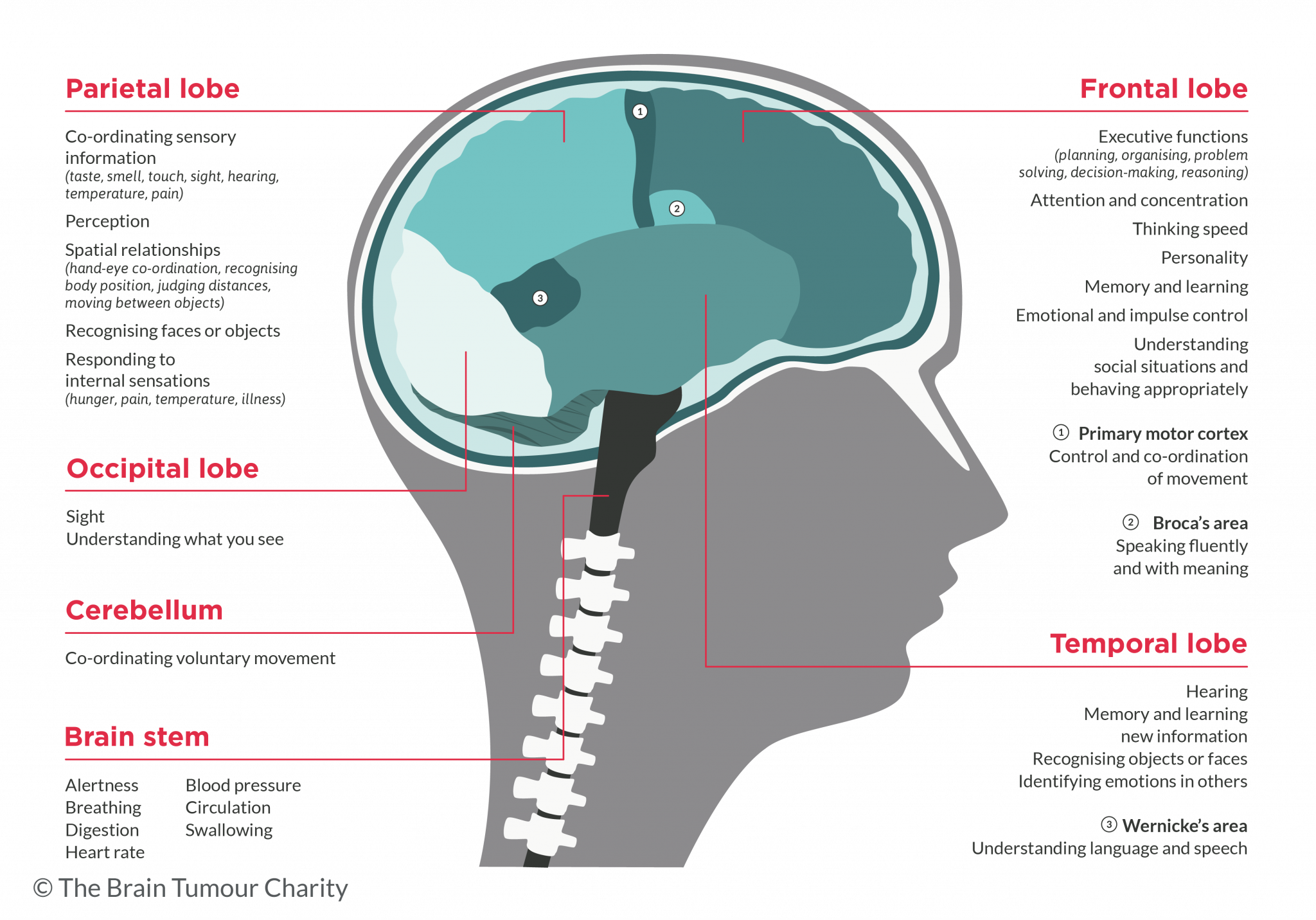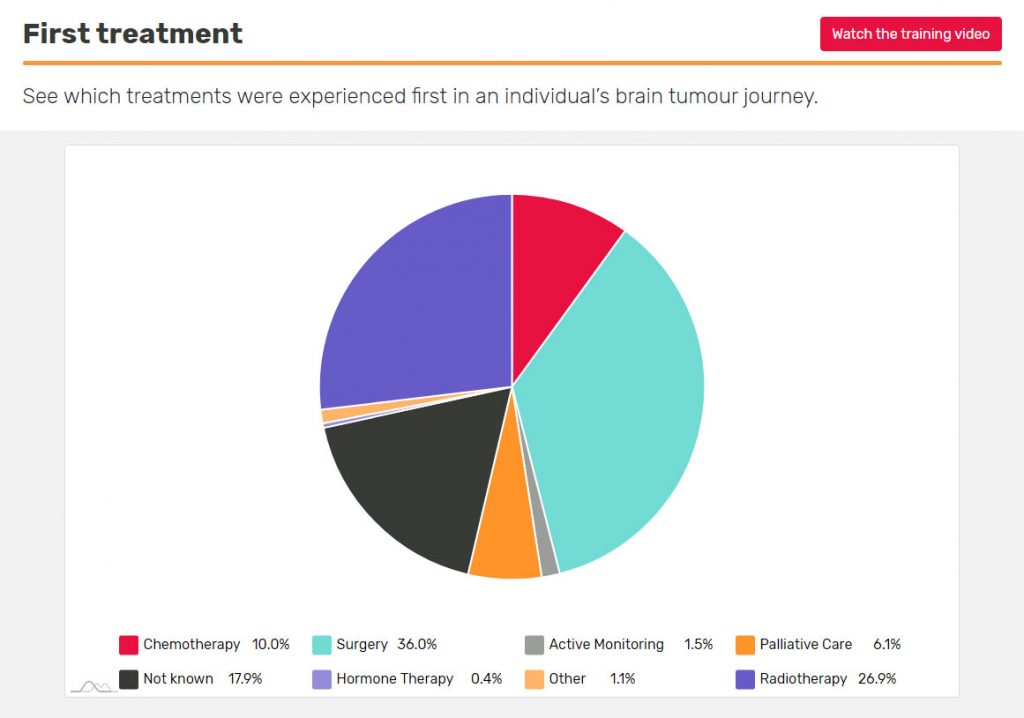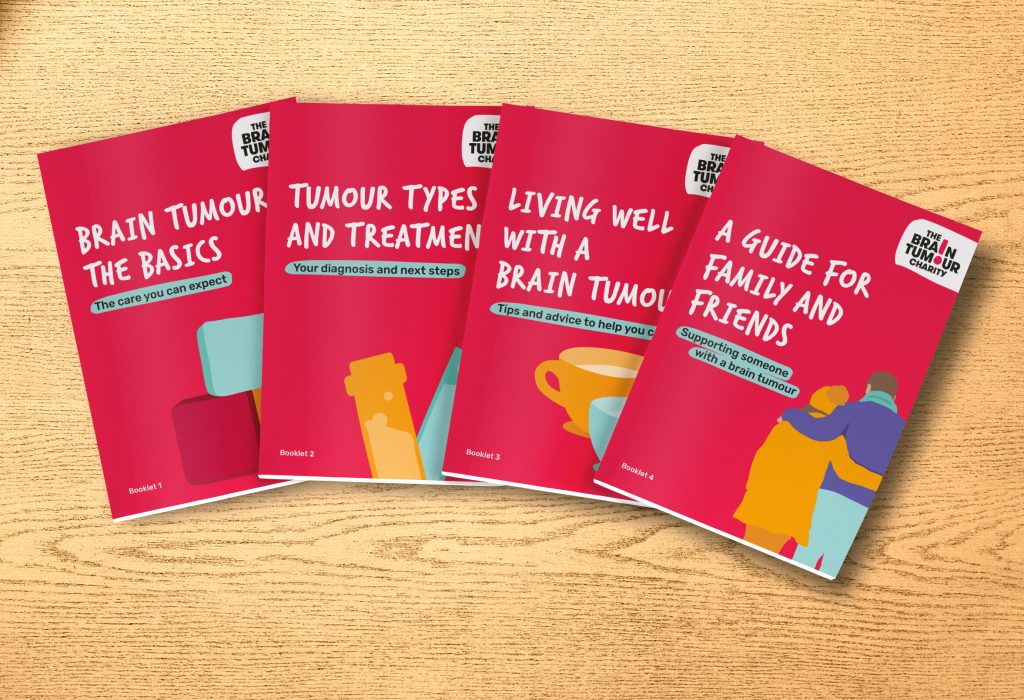Brain tumour
A brain tumour is a mass, or lump in the brain which is caused when brain cells divide and grow in an uncontrolled way. There are different types and grades of brain tumour, which we will discuss here.
On this page:
- What is a brain tumour?
- What are the symptoms of a brain tumour?
- What causes a brain tumour to grow?
- How is a brain tumour treated?
- How long can I live with a brain tumour?
What is a brain tumour?
A brain tumour is a growth of abnormal cells that can either grow in the brain or near it.
The cells in our body grow, divide and multiply to help with our body’s natural processes, such as damage repair, and to replace old cells. But, sometimes mistakes can be made during cell growth and division. and abnormal cells are formed.
Usually, the body’s natural defence mechanisms destroy these abnormal cells, but occasionally the abnormal cells grow, multiply and form a lump of cells. This is called a tumour. When this happens in the brain, a primary brain tumour is formed.
Brain tumour grades and types
Brain tumours can be:
- primary brain tumours, that start growing within the brain
- secondary brain tumours, that start growing somewhere else in the body and then spread to the brain. These are also known as metastases.
Brain tumours are also graded from 1-4 according to how fast they grow and how likely they are to spread within the brain. Tumours graded 1 or 2 are called low grade tumours and are non-cancerous. Tumours graded 3 or 4 are called high grade tumours and are cancerous.
There are over 130 different primary brain and spinal tumours. They are grouped and named according to the type of cell they grow from, their location in the brain and their grade.
What are the symptoms of a brain tumour?
As our brains control everything about our bodies, the symptoms caused by a brain tumour can be wide-ranging.
When a tumour grows it can block the flow of cerebrospinal fluid (CSF) around the brain, leading to increased pressure within the brain. This can cause generalised symptoms, such as headaches, nausea or seizures.
The tumour can also cause damage to the brain by directly pressing on the surrounding cells. As different areas of the brain control different functions, a tumour will cause different symptoms according to where it is in the brain.
For example, the frontal lobe in the human brain controls movement and speech as well as other functions. So, a tumour there might cause balance and speech problems.

What causes brain tumours?
It’s important to remember that there’s nothing you could have done, or not done, to prevent a brain tumour.
Why some brain cells start growing uncontrollably is not yet fully understood, but we do know there are some risk factors.
How is a brain tumour treated?
This will depend on what type of brain tumour you have, what grade it is and where it is in the brain.
Generally, treatment for brain tumours is surgery, radiotherapy, chemotherapy, or a combination of these.
However, some slow-growing, low grade tumours that are causing minimal effects might not be given any immediate treatment. This is because the treatments can cause more side-effects than the tumour. Instead you’ll be put on active monitoring (sometimes called watch and wait).
What treatment do people with a similar diagnosis have first?
If you’ve just been diagnosed with brain cancer and are about to have treatment, you may want to see what other people’s first treatment was. Use the First Treatment insight in BRIAN, which you can personalise to make it relevant to you.

How long can I live with a brain tumour?
This is almost impossible to answer. The prognosis for brain tumours varies widely from person to person. It depends on a lot of factors, such as the:
- type of brain tumour
- grade of brain tumour
- location of the tumour within the brain
- success of surgery (where used)
- the tumour’s reaction to treatment
- the tumour’s molecular/genetic make-up (to a certain extent)
- age of the person affected
- individual biology and general health of the person affected.
So even someone with the same tumour as you who’s having similar treatment, may have a different prognosis.
Your doctor cannot be absolutely certain about what will happen to you. They can only give you an estimate, based on your tumour type and current situation.
But they may not be able to predict other factors, such as how well you might respond to treatment. This is why prognosis is often an ongoing process, revised at different stages in your journey.
It’s important to remember that statistics and averages cannot tell you what will happen to you specifically.
Frequently asked questions
-
Not all brain tumours are types of brain cancer.
Brain tumours are graded 1-4 according to their behaviour such as their speed of growth and how likely they are to spread. These grades are then split into low grade (1-2) and high grade (3-4), with low grade tumours defined as non-cancerous and high grade tumours defined as cancerous.
In this section

Get support
If you need someone to talk to or advice on where to get help, our Support and Information team is available by phone, email or live-chat.
Recommended reading
Share your experiences and help create change
By taking part in our Improving Brain Tumour Care surveys and sharing your experiences, you can help us improve treatment and care for everyone affected by a brain tumour.
